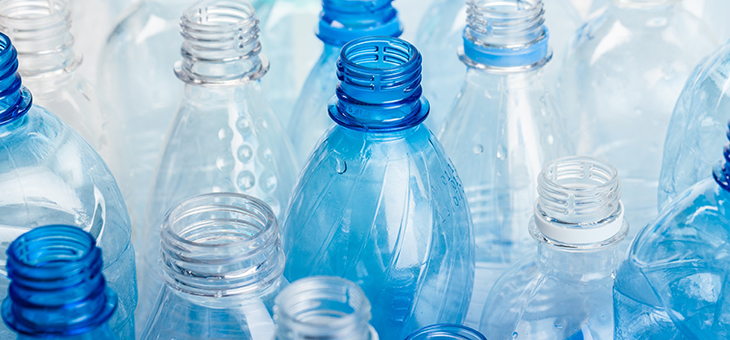Making use of an old plastic water bottle at the gym or carrying your lunch in a reusable takeaway container feels like a satisfying way to help the environment. After all, you’re making an effort to cut down on single-use plastics and you’re doing your bit to keep man-made materials out of the ocean.
But some health experts have raised concerns about a chemical in plastic called ‘BPA’ that could be harmful to health, warning that we need to be careful of the types of materials out of which we continue to eat and drink.
With single-use plastics still on sale in supermarkets though, should you actually be concerned? Here’s everything you need to know.
What exactly is BPA?
Bisphenol A (BPA) is an industrial chemical that has been used in the production process of certain plastics and resins since the 1960s.
It’s most commonly found in transparent polycarbonate plastics such as some food containers, drinks bottles, baby bottles, tableware and lunchboxes. BPA is also found in epoxy resins that are used as a protective coating in metal products such as some canned foods, bottle tops and water supply lines. It’s also what makes the smooth side of shop receipts. Some dental sealants and composites also may contain BPA. As it’s been in use for decades, BPA is everywhere and it’s difficult to avoid coming across it in day-to-day life.
What’s the issue?
BPA crashed into media headlines back in 2008 when a CDC study showed that 92 per cent of US adults had signs of BPA in their urine.
Since then studies have found that BPA can leak out of certain plastics and into our food, especially when they are heated. While it’s worth noting that the science is not yet completely clear on how BPA may affect humans, one Harvard study linked exposure to fertility problems and other conditions.
It’s thought BPA can have possible health effects on the brain and prostate gland of foetuses, infants and children. It can also affect children’s behaviour. Additional research suggests a possible link between BPA and increased blood pressure.
It’s also thought to be an endocrine disruptor, which means it can imitate the body’s hormones. Some research has suggested that it may interfere with puberty, menopause or cause cancers that are related to hormones. However, the research can be difficult to read, as alterations in the endocrine system can be subtle and hard to attribute to a specific cause.
Even though some studies have found certain chemicals in plastics can end up in things we may eat and drink, many food agencies say that because the levels are low, they are within a range considered safe to humans. This is why BPA options are still available to buy.
However, there is a growing call for governments to stop manufacturing plastics with BPA and seek out alternatives instead, suggesting that BPA may be a factor in the rising number of human illnesses. This is why you’ve probably seen lots of ‘BPA-free’ options popping up in shops and supermarkets.
While the federal Food and Drug Administration in the US has not named BPA as harmful, it did take the precautionary measure of banning BPA from baby bottles and cups back in 2012. Businesses in California are also now required by law to provide warnings for products that expose consumers to significant amounts of BPA.
If I wanted to, how do I avoid BPA?
Plastic and aluminium is everywhere we look, so it’s not easy to avoid BPA, however there are some steps you can take to reduce your exposure if you wish.
-
- Avoid packaged foods: eat a mostly fresh, wholefood diet. Stay away from canned foods and food packaged in plastic containers labelled ‘PC’.
-
- Drink from glass bottles: do away with the flimsy plastic bottles and purchase a BPA-free, glass or stainless-steel water bottle. The same goes for reusable coffee and tea mugs, too.
-
- Replace plastic Tupperware: store food in glass or silicon containers and opt for fresh or frozen vegies instead of canned.
-
- Stay away from BPA products: for example, shop receipts contain high levels of BPA, so don’t take one when it’s not essential.
-
- Don’t microwave plastic: store food and reheat it in glass containers rather than plastic.
Do you have concerns about BPA?
– With PA
If you enjoy our content, don’t keep it to yourself. Share our free eNews with your friends and encourage them to sign up.
Related articles:
https://www.yourlifechoices.com.au/health/your-health/how-to-boost-low-testosterone
https://www.yourlifechoices.com.au/health/your-health/is-your-cookware-toxic
https://www.yourlifechoices.com.au/recycling-crisis-begins-with-us
Disclaimer: This article contains general information about health issues and is not advice. For health advice, consult your medical practitioner.

